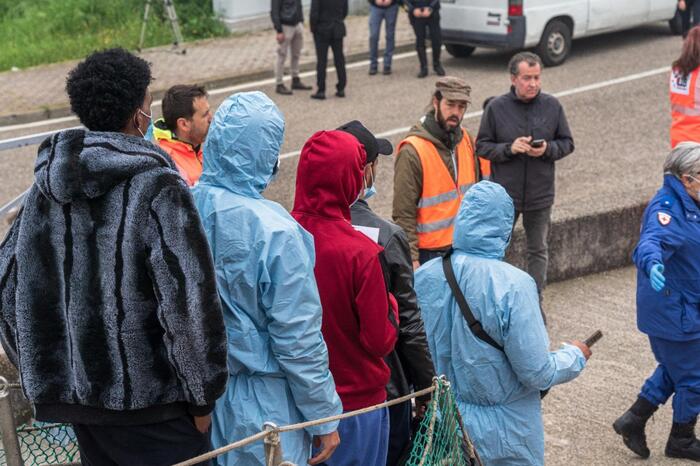There is a before and an after in the history of European migration policies and it dates back to April 10, 2024: the European Chamber gave the final green light to the new Migration and Asylum Pact, completing work that, in fact, lasted ten years. The EU Commission led by Ursula von der Leyen ends her mandate by bringing home one of the crucial dossiers of this legislature. Migration policies, over the years, have divided member countries, split governments and shattered alliances. And the vote on the new Pact was no different. Fdi voted yes to a large part of the package, in line with the government but in dissent from the Conservatives and Reformists and differently from its allies: Fi, totally in favor, and the League, against more than half of the texts and far from the position of the Interior Minister Matteo Piantedosi.
The vote lasted an hour and was preceded by a trail of suspense fueled above all by dissent within the socialists: the French delegation but above all the Democratic Party announced their vote against. For the Dems, the only exception was represented by the regulation on the management of asylum and migration, which includes the solidarity mechanism. For the rest, the Migration and Asylum Pact saw the clear rejection of the Nazarene. "The compromise reached does not go beyond the Dublin system, it does not relieve the burden on the countries of first entry and is strongly based on a security approach", protested the democratic MEPs. In short, the new Pact seeks to respond to a fundamental need: to provide unique rules throughout Europe, given that this has not been the case until now.
At the center of the reform is the balance between responsibility (on the part of the countries of first arrival) and solidarity (on the part of the others). Enough therefore with a dysfunctional system that placed all the burdens of control on border states, in the Mediterranean but not only, but then allowed migrants to scatter throughout the EU, creating the odious phenomenon of secondary movements (often people fleeing without documents), a source of tension between countries and of insecurity for the migrants themselves. From now on, the nation of first arrival will have to collect the asylum application, manage the person and the case quickly, but will be able to count on the help of others, either in terms of relocation or financial contributions. Above all, however, those who arrive from a part of the world that is not so disastrous and are not entitled to EU protection will be repatriated quickly. Or at least, that's the idea. The implementation of the new rules, which are very complicated on a technical level, will now be crucial. The 27 will have two years to do so. Von der Leyen assured countries of first entry, such as Italy, that from now on "they will no longer be alone" in the face of the challenges posed by immigration. "The best Europe is the Europe that moves together", he underlined. "It is a historic day", echoed the president of the European Chamber Roberta Metsola.
On the opposite side, however, the Hungarian Viktor Orban, who together with the sovereignist-led Poland had voted against the Pact: "Unity is dead, safe borders are no longer there, it is another nail in the coffin of the European Union ", thundered the Magyar leader. In Italy, two leading members of the government applauded the vote. "The Pact takes into account our needs", underlined Piantedosi. "It is the best possible compromise, Italy had an important role as did the EPP", commented Foreign Minister Antonio Tajani. Yet, only Fi voted with conviction for the entire package. Fdi expressed itself in favor in eight out of ten votes, giving an important contribution on the two texts most in the balance: the management of migratory crises and the repatriation procedure, both opposed by the dems, as well as by the M5s. The Pact "worsen the burdens borne by first-land countries like ours. We opposed it, Meloni and his associates instead bowed, voted in no particular order and split", commented Giuseppe Conte on social media.

